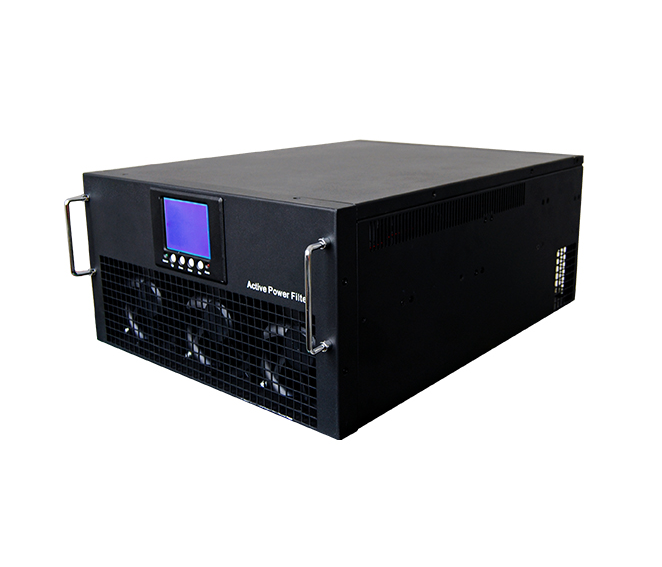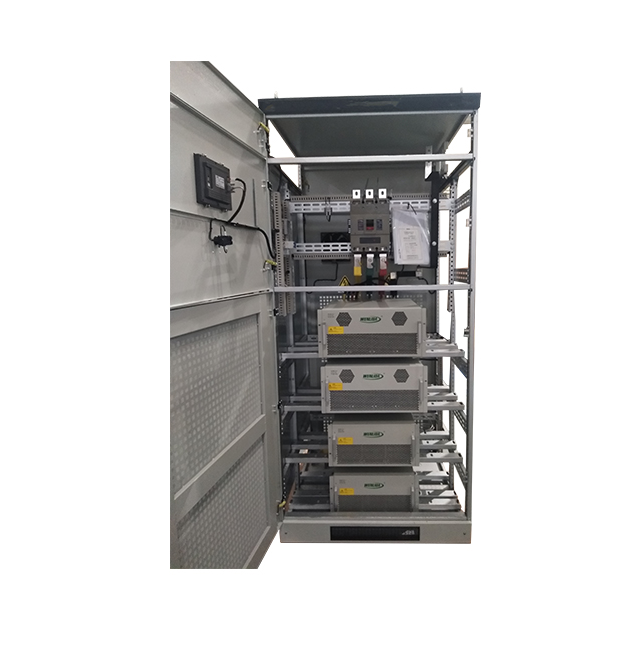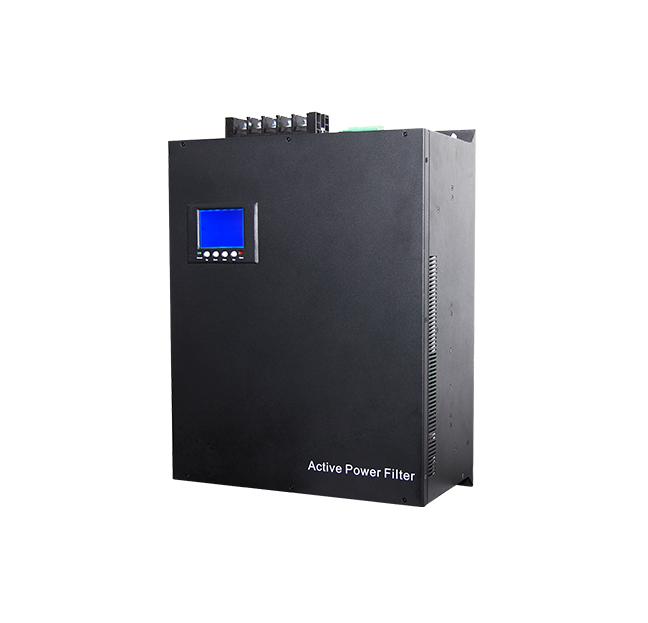What is the Module of the Harmonic Filter in Power Quality?
In today’s increasingly complex electrical networks, maintaining high power quality has become an urgent priority, particularly as non-linear loads—such as computers, variable-speed drives, and digital devices—become more prevalent. These technologies are essential for modern industrial and commercial operations. But they often generate harmonic distortion, which affects the efficiency and stability of the power grid. Harmonics are unintended frequency components in electrical current that can cause a variety of operational problems. These include energy inefficiency, equipment overheating, and costly regulatory noncompliance. To address these challenges. Solutions such as harmonic filter modules have become an important tool to ensure electrical system reliability and optimal performance.

This article will explore the importance of the Module of the Harmonic Filter modules, the market dynamics that are driving their growth, and the critical role Shanghai Wenlida Technology Co., Ltd. plays as a leading supplier of these advanced solutions.
What is a Harmonic Filter Module?
The harmonic filter module is a precision device. It is designed to reduce harmonic distortion within an electrical system, thereby improving the overall quality of the power supply. Harmonics are often caused by non-linear loads such as power electronics, machinery, and computer equipment. These loads distort the natural waveform of the electrical current. The presence of these harmonic frequencies can disrupt the operation of the electrical system. This can lead to problems such as overheating, inefficient use of energy, and possible failure of sensitive equipment.
The primary function of a harmonic filter is to eliminate or minimize these unwanted harmonic frequencies, which helps improve the power factor, reduce energy losses, and protect sensitive devices from damaging voltage fluctuations. Harmonic filters come in two main types: passive and active, with active power filters offering a more advanced, real-time solution that is particularly effective in modern applications.
Understanding Active Power Filters (APF)
An active power filter (APF), also known as an active harmonic filter (AHF), is an advanced power electronics device. Designed to dynamically cancel harmonic distortion and compensate for reactive power imbalances within the system. Unlike passive filters which use static components such as capacitors and inductors. Active filters rely on real-time data processing and advanced electronics to actively filter out harmful harmonic currents.
The functioning of an APF is based on detecting harmonic components in the load current using sophisticated algorithms, such as the Generalized Synchronous Reference (GSP) method. Once these harmonics are identified, the APF generates an equal and opposite harmonic current and injects it into the electrical grid through semiconductor devices like Insulated Gate Bipolar Transistors (IGBTs). This process of dynamic harmonic current injection cancels out the undesired harmonics in real-time, ensuring smoother and more efficient operation of the electrical system with reduced power losses and enhanced protection for connected equipment.

Why is the Demand for Harmonic Filter Modules Growing?
Market Trends and Growth in Harmonic Filters
The surge in demand for harmonic filter modules can be attributed to several factors. These include the rapid spread of industrial automation, increasing reliance on smart technologies and the integration of renewable energy into the grid. As industries and businesses increasingly rely on non-linear loads and renewable energy systems. The generation of harmonic distortion within power systems is becoming increasingly common. This, in turn, is driving the need for effective solutions that can manage these distortions and maintain the integrity of the power supply.
According to recent data, the global harmonic filter market was valued at approximately USD 1.9 billion in 2023, with a Compound Annual Growth Rate (CAGR) of 7.5%. This growth is primarily due to the increasing popularity of sensitive electronic equipment, industrial automation systems, and renewable energy technologies. These technologies tend to introduce harmonic distortion into the power grid. The growing need to comply with stricter power quality regulations is also a significant factor fueling the market’s expansion.
Future Growth Projections and Market Opportunities
Looking ahead, the the Module of the Harmonic Filter market is expected to continue its robust growth. By 2030, the global market for harmonic filters is forecasted to reach USD 3.5 billion, reflecting a steady CAGR of 7.3% from 2023 to 2030. Key drivers of this growth include the increasing integration of renewable energy sources, such as solar and wind power, which inherently introduce harmonic distortions. Additionally, the growing demand for energy-efficient systems, electric vehicles, and the continued rise of industrial automation will further accelerate the need for harmonic filter solutions across various industries.
Shanghai Wenlida Technology Co., Ltd.: A Key Supplier of Harmonic Filter Modules
Company Overview
Shanghai Wenlida Technology Co., Ltd. is a leading supplier of innovative power quality solutions, with a specialization in the Module of the Harmonic Filter. Renowned for its research-driven approach and commitment to quality, Wenlida has gained a solid reputation in the power electronics sector. The company provides state-of-the-art devices that enhance power system efficiency, improve power quality, and minimize energy losses.

One of Wenlida’s flagship products, the WT-APF (Active Power Filter), is a powerful solution engineered to dynamically suppress harmonic distortion and address reactive power imbalances within electrical systems. WT-APF with its advanced features and superior performance. It has become the first choice for industries looking to optimize energy use and minimize the risk of electrical failure.
Key Features of the WT-APF Active Power Filter
The WT-APF is designed to provide high performance across a broad range of commercial and industrial applications. Some of its standout features include:
Dynamic Harmonic Suppression: WT-APF continuously detects harmonics and actively generates inverse harmonic currents. To eliminate distortion in the electrical system.
Smart Air Cooling: The WT-APF is equipped with an advanced air cooling system. It effectively dissipates heat to ensure long-term reliability and optimal operating performance.
Low Noise Operation: With noise levels under 70 dB, the WT-APF operates quietly, making it suitable for environments that require minimal noise disruption.
High-Frequency Operation: Operating at 21.6 kHz, the filter efficiently handles a wide range of load variations, providing superior harmonic suppression in diverse conditions.
Global Voltage Compatibility: Designed to operate across a variety of global regions, the WT-APF supports both 50/60Hz ±5Hz frequencies, making it versatile for different markets.
Wenlida also offers OEM/ODM services, allowing clients to customize the WT-APF to meet specific needs. With a standardized production line, Wenlida ensures that every unit adheres to strict quality control measures, guaranteeing reliable performance and enhanced power quality.
Global Reach and Customer Base
Wenlida’s commitment to quality has earned it a strong international presence, with its products now exported to over 180 countries and regions. The company serves industries including manufacturing, renewable energy, transportation, and telecommunications, where maintaining reliable power quality is crucial. With a continued focus on innovation and customer satisfaction, Wenlida is at the forefront of providing high-performance power electronics solutions to meet the growing global demand for harmonic filtering.
The Importance of Harmonic Filters for Future Power Systems
Challenges Posed by Non-Linear Loads
These harmonics can distort the voltage waveform. Leading to overheating, inefficiency and potential failure of critical equipment. Harmonic filter modules (e.g. WT-APF) actively filter out harmful harmonics and stabilize power quality. plays a crucial role in alleviating these problems.
By integrating active power filter modules. Companies can ensure real-time harmonic cancellation, increase system efficiency, reduce energy waste and protect their valuable equipment from damage.
Compliance with International Standards
Many countries have established strict regulations governing acceptable levels of harmonic distortion in electrical systems. For example, the IEEE 519-2014 standard sets limits on total harmonic distortion (THD). Failure to comply with these standards can result in significant fines. Harmonic filter modules are essential for companies to meet these regulatory requirements. Ensuring power quality compliance and avoiding high fines is becoming increasingly important.
Conclusion: The Future of Harmonic Filter Modules
As power systems become more complex, nonlinear loads continue to expand. The demand for effective harmonic filter solution modules will inevitably rise. The global harmonic filter market is expected to reach $3.5 billion by 2030. These devices have become indispensable in ensuring the efficiency and integrity of modern power systems.
With its cutting-edge solutions like the WT-APF, Shanghai Wenlida Technology Co., Ltd. is well-positioned to lead the way in this rapidly growing market. By investing in high-performance harmonic filter modules, businesses can optimize energy usage, enhance system reliability, and remain compliant with rigorous power quality standards—making harmonic filters an essential component of the power systems of tomorrow.
